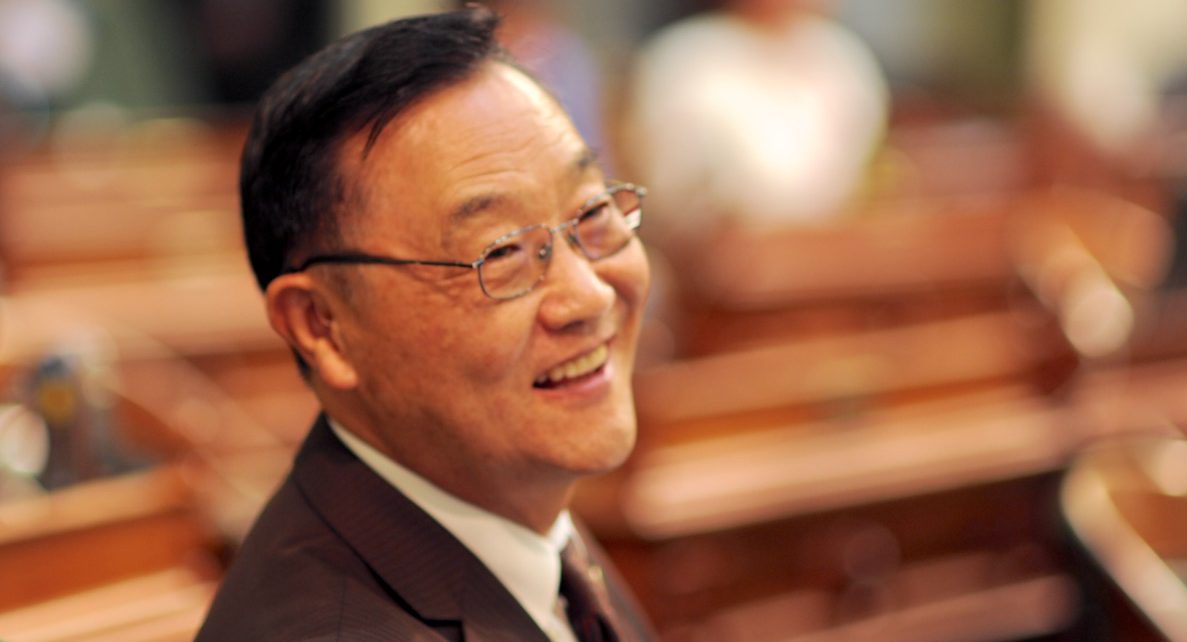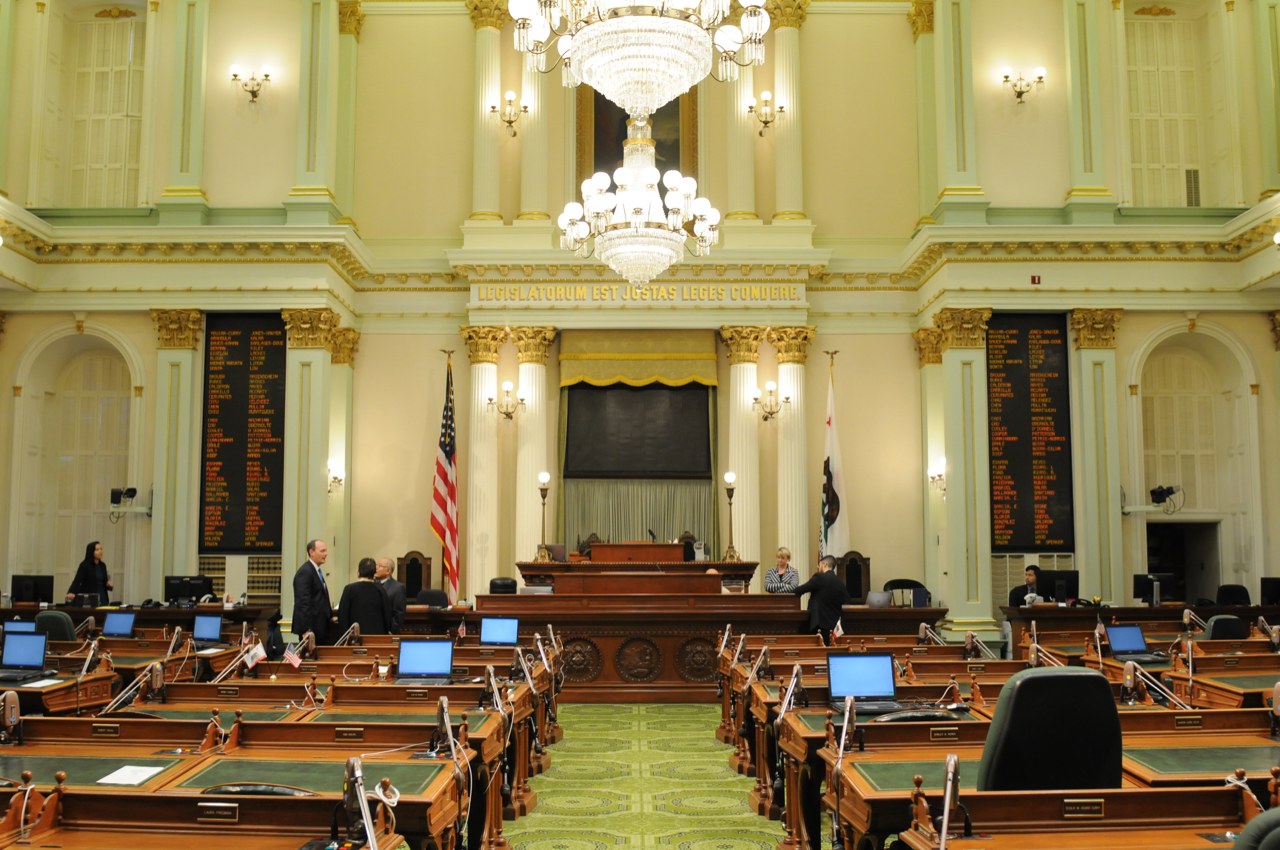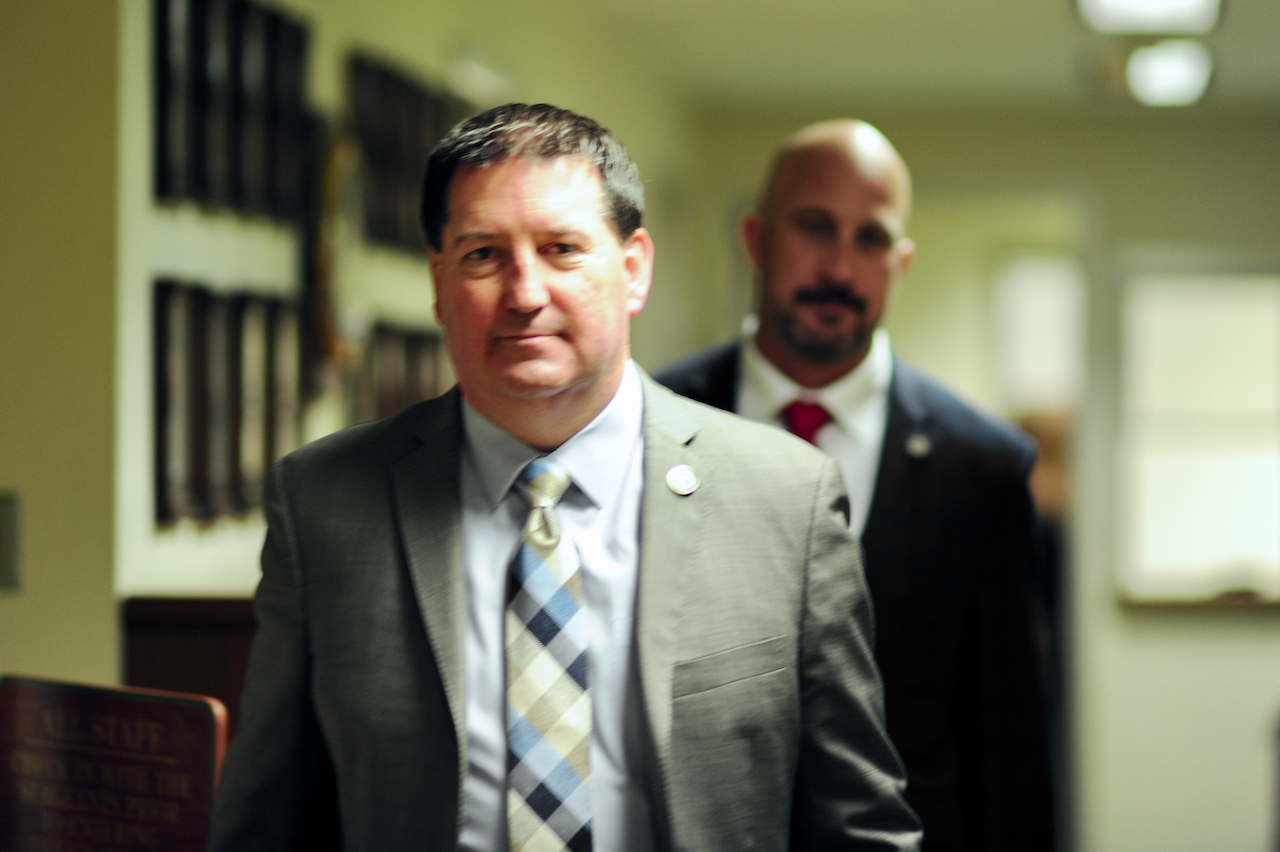
Assemblyman Steven S. Choi, Ph.D.. (Kevin Sanders for California Globe)
Assembly Kills 50 Percent of Republican Assemblyman Steven Choi’s Bills Under New Rule
New Assembly rule killing bills before ever receiving public committee hearing
By Katy Grimes, June 4, 2019 2:15 am
Assemblyman Steven Choi (R-Irvine) wants to know why fifty percent of his bills have been killed prior to ever receiving a public committee hearing. “Some have never been agendized,” Choi said in an interview. “The committee chair killed them, or the Rules Committee kept the bill, and never assigned it to a committee.”
Choi is talking about a new rule in the Assembly, which allows committee chairmen and women to refuse to hear a bill they don’t like, even before having a hearing and receiving votes, so they kill these bills before they can even see the light of day. Choi said it is important to follow the proper process of transparency where every bill is voted on in a committee, even if it is voted down. Right now the Democrats are avoiding having to vote on certain bills which may make them look badly to their constituents during reelection campaigns.
Many Democrats were caught off guard when even some of their bills were killed prior to a committee hearing, as California Globe recently reported. But Assemblyman Steven Choi wants to know why 50 percent of his were killed.
Choi said these are his “dangerous” bills that Assembly Democrats killed:
AB 1094 – would end the use of taxpayer money being used in the Legislature to settle sexual harassment claims. Ironically, shortly after Choi’s bill was killed, the AP reported, the “California Legislature racked up more than $1.8 million in legal costs from sexual harassment investigations during 2018 and the first month of this year when at least nine current or former lawmakers faced allegations of misconduct.” Choi asked why taxpayers are on the hook for these settlements.
AB 444 – Would close a loophole in sex offender registration for soliciting sex from a minor ages 15 to 18. Currently no sex-offender registration is required for this. Choi told me there was no testimony or vote given in the Public Safety Committee, and the chairman of the committee refused to even hear the bill. Ironically, competing legislation by Sen. Scott Wiener (D-San Francisco), who authored SB 145, says said sex offenders would not have to automatically register with the state if the offenders are within 10 years of age of the minor. The bill now said the discretion of a judge would a determine the case.
AB 250 was allowed to be heard, but that was it. There was no vote allowed by Committee chairwoman Autumn Burke (D-Inglewood). AB 250 would reduce the $800 minimum franchise tax to $600, $400, or $200, based on the taxpayer’s gross receipts. Companies with gross receipts less than $2.5 million would pay $200; those with receipts less than $7.5 million would pay $400; and those with receipts less than $15 million would pay $600.
Choi said, “California has the highest small business failure rate. In this state, three out of four small businesses will fail in the first two years. Small businesses employ 49.6 percent of the private workforce in California. Small businesses create jobs which are critical to Californian’s success. Encouraging and supporting these businesses is key to improving the state’s economy.”
Choi said Burke made new rules for the Revenue and Taxation Committee, requiring all proposed bills to meet new qualifications, which only then means bills will be “considered.” This means bills are not being vetted in a public forum, but being decided behind closed doors, out of the public forum.
AB 1334 proposes to eliminate the veto power of a school in the transferring of a student to another school within the same district. Currently a parent could have another school lined up and approvals made for the transfer of their child, but the existing school in some districts can override the transfer, disallowing parental choice.
AB 1206 would have provided a tax credit for home owners who provided rental units at below market rates for homeless endangered individuals seeking housing, through a 501 c3 organization. This bill was never given a vote. “I thought this Legislature was concerned about people finding affordable housing,” Choi said.
AB 347 Proposed a pilot program for privately funded preschool subsidies. This bill was based on a 2015 bill, and written nearly verbatim, which had received unanimous support in both the Senate and Assembly. However, the Revenue and Tax Committee would not vote on it.
Several of Choi’s bills coincided with Democrat’s bills seeking the opposite effect.
Senate Bill 468 by Sen. Hannah Beth Jackson (D-Santa Barbara), would seek to repeal tax credits, and would create a new bureaucracy performing functions currently performed by a number of existing agencies. $65.2 billion per year in various California income tax credits, deductions, exemptions, and exclusions, is now being targeted under the guise of “transparency and accountability.” So Choi’s bills to offer any tax credits were doomed.
Assemblyman Jay Obernolte (R-Hesperia) introduced House Resolution 35 to require Assembly committee chairpersons to grant a hearing to all bills referred to their committees. Under the Standing Rules of the Assembly that just took effect this year, chairs of committees are given complete discretion on whether or not to hear bills. Previously, the Assembly rules required that every bill be set for a committee hearing.
“The new rules have already proven unfair and have led to legislative censorship. Now that committee chairs have the unilateral power to set legislation, they can essentially kill a bill by denying it a hearing – without a vote of the members of committee and without any testimony from the public. In fact, dozens of bills have already been held this year,” Assemblyman Obernolte said in an interview. “This is a violation not only of the longstanding practice of this chamber, but also of the principles of democracy itself.”
With the previous Assembly rules which required every bill be set for a committee hearing, it guaranteed that all members were treated equally and fairly, and that their bills would at least be heard in a public setting. This rule also prevented special interest groups from silencing unfavorable legislation, and ensured that controversial bills weren’t shelved because committee members simply did not want to cast a politically difficult vote, as is occurring every day in the Legislature presently. The new rules provide the chairperson of a committee the discretion to arbitrarily decide which bill to set for hearing without giving any justification for those that instead die a silent death.
HR 35 also has yet to be referred to a committee for a hearing.
Assemblyman Choi said he represents 500,000 constituents just as the committee chairmen and women do, and killing his bills prevents his constituents from having their elected representative fully representing them.
- Energy Company Warns CARB on ‘The Stark Reality’ Driving In-State Refining Capacity to Zero of CA’s Remaining 7 Refineries - February 28, 2026
- CAL DOGE Investigation: $1 BILLION California Solar Program Instead Funded Democrat Voter Registration & Activism Efforts - February 27, 2026
- Could President Trump End the Income Tax? - February 26, 2026




